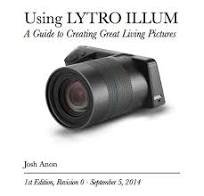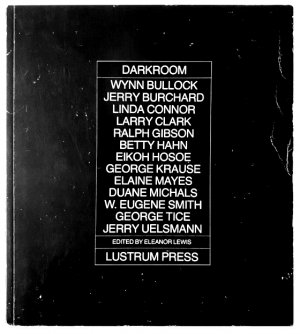wlewisiii
Just another hotel clerk
They got me interested; other things taught me the hows and whys.Mine were National Geographic and Life magazine. If you don't automatically understand, there is no way I could explain it to you.
Rayt
Nonplayer Character
Going to museums to look at the old masters taught me alot about composition. Ansel Adams the Negative provided the technical details.
Zuiko-logist
Well-known
Time Life book Grand Canyon, with Ernst Haas photography.
Retro-Grouch
Well-known
When I was in grade school, age 10, my parents purchased a complete set of The Columbia Encyclopedia. One volume, dedicated to the visual arts, had a huge section devoted to photography (remarkable in 1962), with images by Stieglitz, Hass, Adams, Weston, and others in the Pantheon. And although I didn't fully understand what the images were about, certainly something clicked for me, to make a tired pun. That Christmas, I asked for a camera, and received a Kodak Hawkeye Instamatic F; the rest is history. I guess that was the most influential book in my development as a photographer!
Zuiko-logist
Well-known
Just had my 30 year old copy signed by JM at the Photographers Gallery in London. He was an absolute gentleman and spent a long time speaking with many people in a long queue to meet him.Cape Light by Joel Meyerowitz (1979) was pivotal for me. Recently graduated with a BFA in Photography, I was still struggling with my indoctrination into the One True Path of photography: the Zone System, the f/64 school of seeing, and, of course, the notion that real photography is in black and white, period. Insecure about shooting color, and not drawn to the overblown heroics of classic landscape photography, I found Cape Light to be a revelation, and, more importantly, permission. Meyerowitz was photographing a place I knew and loved, and seeing it in a way that aligned with the sort of vision I was hesitant to allow myself until then.
Cape Light is a masterpiece in its own right, of course. But I'm grateful that it came into my life when it did, and influenced me as it did.
d.keljikian
Established
Joseph Koudelka: Gypsies and Exiles
William Klein: New York
Doug
William Klein: New York
Doug
Darthfeeble
But you can call me Steve
Adams' Yosemite, Galen Rowell's Mountain Light.
jankap
Established
Ko.Fe.
Lenses 35/21 Gears 46/20
I have plenty of books from usual street photography suspects of film only era.
They helped to step away from typical forums primitivism in photography. It took me years of practice and studying. Not just pictures glazing. Which is, sorry, primitive. But reading about those photogs from those who been close. Watching interviews with photogs and reading texts they wrote. This is just as important as looking at pictures.
They helped to step away from typical forums primitivism in photography. It took me years of practice and studying. Not just pictures glazing. Which is, sorry, primitive. But reading about those photogs from those who been close. Watching interviews with photogs and reading texts they wrote. This is just as important as looking at pictures.
Yokosuka_Mike
Abstract Clarity
I have plenty of books from usual street photography suspects of film only era.
They helped to step away from typical forums primitivism in photography. It took me years of practice and studying. Not just pictures glazing. Which is, sorry, primitive. But reading about those photogs from those who been close. Watching interviews with photogs and reading texts they wrote. This is just as important as looking at pictures.
I had to look up "primitivism" it's not a word that I'm familiar with.
As always, thank you for sharing your point of view. I think I'll be pursuing primitivism in the future, it might just be the missing element of photography that I've been searching for.
Be well,
Mike
Rick Waldroup
Well-known
The Americans by Robert Frank and Living With the Enemy by Donna Ferrato.
bjorke
Designated Driver
Exiles was my first impulse response here too.
As a child, a neighbor was a news guy and I baby-sat his kids: when they slept, I read his library. This brought a lot of stuff to my 10-12-year-old eyes, it's kind of a haze now. I think Richard Avedon was the first named photographer I could recognize, but I did go across the shelves pretty thoroughly.
As a child, a neighbor was a news guy and I baby-sat his kids: when they slept, I read his library. This brought a lot of stuff to my 10-12-year-old eyes, it's kind of a haze now. I think Richard Avedon was the first named photographer I could recognize, but I did go across the shelves pretty thoroughly.
ddutchison2
Established
Darkroom and Darkroom 2
Interviews with well known photographers about what they do in the darkroom, and more importantly, why. Every photographer's approach to "post" is completely unique, and completely integrated into their vision - and there's a page for each with full technical details - as important or unimportant as they may be.
The book and its companion showed me that shooting - be it on film or digital - is only the first half of making an image, that photography is more of an interpretive activity than a technical one, and that we're all photographers here. It also introduced me to a number of wonderful photographers I had not yet heard of before.
The interview with Duane Michals in particular helped define the standards I aspire to.
Interviews with well known photographers about what they do in the darkroom, and more importantly, why. Every photographer's approach to "post" is completely unique, and completely integrated into their vision - and there's a page for each with full technical details - as important or unimportant as they may be.
The book and its companion showed me that shooting - be it on film or digital - is only the first half of making an image, that photography is more of an interpretive activity than a technical one, and that we're all photographers here. It also introduced me to a number of wonderful photographers I had not yet heard of before.
The interview with Duane Michals in particular helped define the standards I aspire to.
Attachments
Evergreen States
Pierre Saget (they/them)
I started taking pictures at 14 or 15 but didn't start buying photo books until my late 20s. So I don't have any that were with me since the beginning. I will say that I like
The Decisive Moment by Cartier-Bresson published by Aperture
the 2008 Steidl edition of The Americans by Robert Frank that my public library has
Exiles by Koudelka
At Home and the World by Marc Riboud
Those are all very influential on my pictures and I review them often. For color, Modern Color by Fred Herzog, The Complete Uncommon Places by Shore and Souls Against the Concrete by Khalik Allah. I also like Deus Ex Machina by Ralph Gibson, despite being physically unwieldy. I also have a French language book called La Photographie Française, a survey by Claude Nori of the history of French photography.
The Decisive Moment by Cartier-Bresson published by Aperture
the 2008 Steidl edition of The Americans by Robert Frank that my public library has
Exiles by Koudelka
At Home and the World by Marc Riboud
Those are all very influential on my pictures and I review them often. For color, Modern Color by Fred Herzog, The Complete Uncommon Places by Shore and Souls Against the Concrete by Khalik Allah. I also like Deus Ex Machina by Ralph Gibson, despite being physically unwieldy. I also have a French language book called La Photographie Française, a survey by Claude Nori of the history of French photography.
Retro-Grouch
Well-known
A superb selection!I started taking pictures at 14 or 15 but didn't start buying photo books until my late 20s. So I don't have any that were with me since the beginning. I will say that I like
The Decisive Moment by Cartier-Bresson published by Aperture
the 2008 Steidl edition of The Americans by Robert Frank that my public library has
Exiles by Koudelka
At Home and the World by Marc Riboud
Those are all very influential on my pictures and I review them often. For color, Modern Color by Fred Herzog, The Complete Uncommon Places by Shore and Souls Against the Concrete by Khalik Allah. I also like Deus Ex Machina by Ralph Gibson, despite being physically unwieldy. I also have a French language book called La Photographie Française, a survey by Claude Nori of the history of French photography.
Share:
-
This site uses cookies to help personalise content, tailor your experience and to keep you logged in if you register.
By continuing to use this site, you are consenting to our use of cookies.



